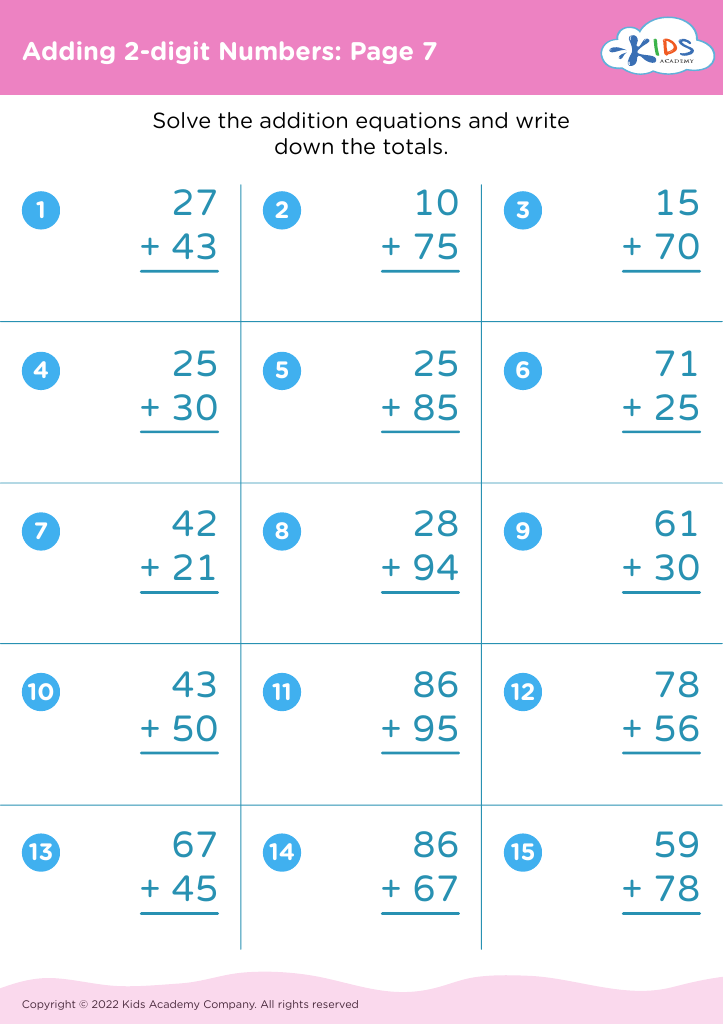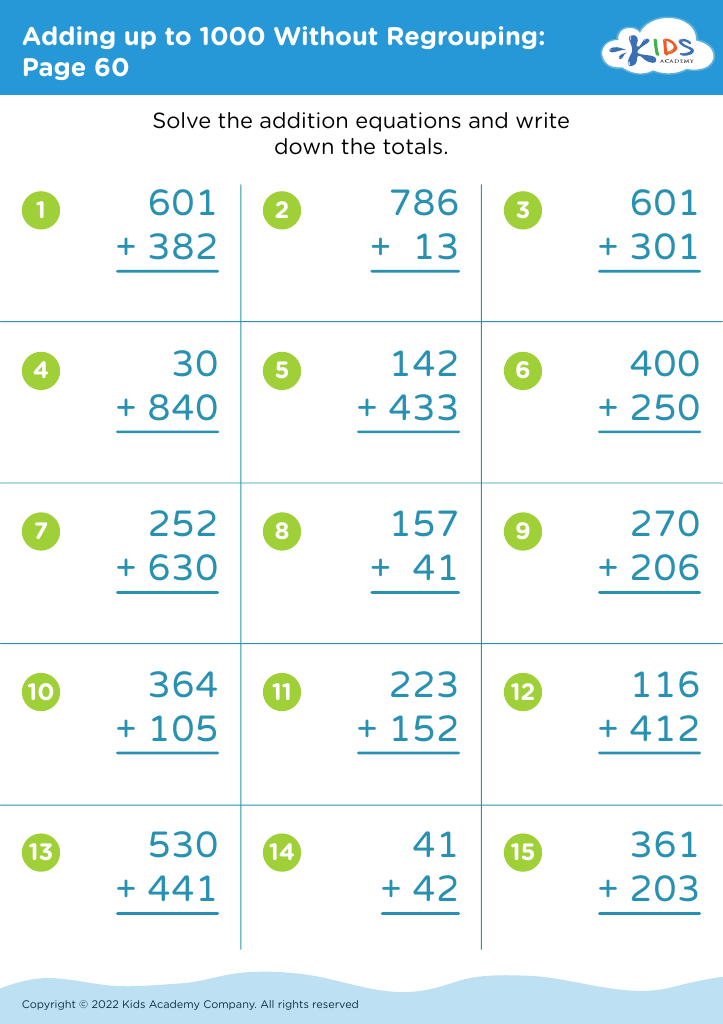Learn addition Addition & Subtraction Worksheets for Ages 5-7
3 filtered results
-
From - To
Discover our engaging "Learn Addition & Subtraction Worksheets for Ages 5-7," designed to make math fun and accessible! These printable worksheets introduce young learners to the fundamentals of addition and subtraction through colorful illustrations and interactive exercises. Tailored to enhance critical thinking and problem-solving skills, each worksheet gradually increases in difficulty to accommodate different learning paces. Ideal for home or classroom use, these resources help children build a strong mathematical foundation while enhancing their confidence. Explore our collection and watch your child's mathematical skills flourish as they embark on their educational journey with excitement and enthusiasm!
Parents and teachers should prioritize teaching addition and subtraction to children ages 5-7 for several compelling reasons. First, these foundational math skills are critical for overall academic success. Mastery of basic arithmetic sets the stage for more complex mathematical concepts that children will encounter later in their education. Early math skills are essential not just in math classes, but in science, economics, and everyday problem-solving.
Additionally, learning addition and subtraction cultivates cognitive development. Engaging with numbers enhances reasoning abilities, promotes critical thinking, and develops problem-solving skills. This early introduction also builds confidence; children who grasp these concepts early are more likely to embrace math challenges as they progress in school.
Moreover, understanding these operations aids in real-life applications. From financial literacy skills, such as understanding money, to practical tasks, like measuring ingredients in cooking, addition and subtraction are indispensable. Finally, nurturing a positive attitude towards math early on can diminish the anxiety often associated with the subject later in life. By investing time and resources into teaching these basic skills, parents and teachers equip children with tools to succeed not just in math, but in various aspects of life.





















